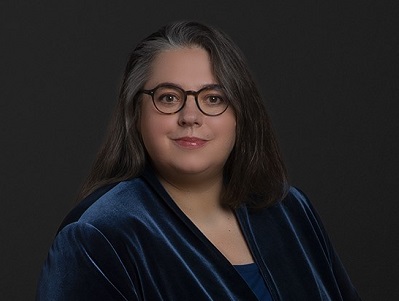Enlarged Board of Appeal reshuffles cards for EPO rules of priority
The EPO is not permitted to reject patent applications based on the applicants not being identical to those in the priority application. Furthermore, no formal transfer of rights of priority is now required. The Enlarged Board of Appeal handed down this decision in its ruling in cases G 1/22 and G 2/22, thus putting an end to years of practice.
16 October 2023 by Konstanze Richter
The Enlarged Board of Appeal’s decision simplifies the transfer of priority rights for an application to the EPO. Following its latest decision in cases G 1/22 and G 2/22, the EPO now takes it as a given that the applicant has the priority rights. This will be the case even if the applicant is different from the applicant of the priority application, and despite there being no formal proof of a transfer of priority rights.
The responsibility to prove otherwise lies with a potential opponent in an opposition proceedings. The development is likely to have far-reaching consequences for patent application practice. Many patent attorneys suggest that it will create greater legal certainty in the future.
EPO clarifies priority rights
The decision is based on two proceedings between patent owner Alexion and opponents Novartis, Hoffmann-La Roche and Chugai Pharmaceutical over patents for the antibody eculizumab, claimed for preventing transplant rejection (case IDs: T 1513/17 and T 2719/19).
The EPO Opposition Division and the Examining Division respectively found the priority claim to be invalid, because not all inventors named by the US patent application had assigned the priority right to the applicants of the respective European patent applications before the filing of the PCT application. The Boards of Appeal heard both cases jointly, then referred them to the Enlarged Board of Appeal for clarification of the interpretation of the priority rights.
So far, the reaction of the patent community is generally positive. Koen Vanhalst from Belgian patent attorney firm De Clercq & Partners writes on LinkedIn that it is “a well-reasoned decision that gives the benefit of the doubt to the applicant/proprietor and shifts the burden of proof to the party alleging non-entitlement to the priority right invoked.”
Greg Sach, owner of Valet Patent Services, comments, “It is a bit of a relief for the whole European patent industry”. Further, patent attorney Brian Cronin writes, “It looks as though common sense has prevailed over legal prejudice.”

Candida Soames
Problem stems from US priority
The problem regularly arises in priority claims based on US applications, since in the US, until the introduction of the new America Invents Act 2012, applications had to name the inventors as patent applicants.
This practice continues to this day, although legal entities that are not the inventors are now able to apply for a US patent. This includes, for example, the company at which the inventors are employed, or on whose behalf they have developed the innovation.
At the EPO, on the other hand, companies often file the patents. If the documents of the first application do not make it clear that the priority rights for the application in other countries were transferred from the inventors to this company, until now the EPO has often declared the applicant’s priority rights claim to be invalid.
Where, at the time of filing, this was not already the case, competitors were often successful in oppositions by attacking the priority claim.
No formal requirement
According to the European Patent Convention (EPC), no formal requirement for the transfer exists. Under Article 87 (1) “any person who has duly filed […] an application for a patent […] or his successor in title, shall enjoy, for the purpose of filing a European patent application in respect of the same invention, a right of priority during a period of twelve months from the date of filing of the first application.”

Antonio Maschio
In addition, some national laws also allow informal transfers of priority rights. Therefore, the Enlarged Board of Appeal has now decided that this also applies to applications at the EPO.
In the future, the applicant’s entitlement to priority is presumed to exist if the formal requirements for claiming priority are fulfilled (case ID: OJ EPO 2022, A92). This is because the copy of the priority application required for the PCT application is only available to applicants entitled to claim this priority.
In future, if the applicant can produce this copy, the EPO’s Examining Division may assume that the priority rights were transferred to them by the initial applicant. This presumption now applies in any case where the priority applicant is not identical to the subsequent applicant, and regardless of whether the subsequent application is a PCT application.
Jurisdiction confirmed
Parties can challenge this presumption. However, a challenger must demonstrate facts that support serious doubts about the applicant’s entitlement to priority.

Cameron Marshall
In addition, the Enlarged Board of Appeal had to decide whether the EPO has any competence to assess the formal entitlement to priority of a PCT application. In one of the referred cases it was suggested that, under the Paris Convention, this is the responsibility of the national patent offices. The judges found the EPO competent to decide on this, according to Article 87 (1) EPC.
Change of representatives
For years, patent owner Alexion has relied on the patent attorney firm Maschio & Soames. Its name partners already filed patents at the EPO for the US pharmaceutical company during their time at D Young. Candida Soames and Antonio Maschio have a background in molecular immunology.
In case of the opposition against EP 1 755 674, the firm had taken over the representation of Alexion from Vossius & Partner in 2015.
Novartis relied on Carpmaels & Ransford as its long-standing counsel in patent filing and prosecution as well as EPO oppositions. Partner Cameron Marshall recently represented the client for a patent covering breast cancer drug everolimus.

Andrea Teschemacher
Initially working with Mewburn & Ellis in the opposition, in the appeal Hoffmann-La Roche and Chugai Pharmaceutical relied on Andrea Teschemacher, who was then with patent attorney firm Isenbruck Bösl Hörschler.
Teschemacher moved to Simmons & Simmons in early 2022, along with several other patent attorneys at the firm. A short time later, Isenbruck dissolved the Munich office due to further departures.
For Alexion
Maschio & Soames (Southampton): Candida Soames, Antonio Maschio (both partners, both patent attorneys)
For Novartis
Carpmaels & Ransford (London): James Warner, Cameron Marshall (both partners); associate: Daniel Goodman (all patent attorneys)
In-house (Basel): Ian Hiscock (Global Head IP Litigation & Transactions), Sarah Thompson (patent attorney)
For Hoffmann-La Roche/Chugai Pharmaceutical
Simmons & Simmons (Munich) Andrea Teschemacher, Tanja Pintsch (both partners), Carsten Prusko (counsel) (all patent attorneys)
In-house (Hoffmann La Roche, Basel): Michaela Klaus, Hermeto Vitra (both patent attorneys)
Enlarged Board of Appeal, European Patent Office, Munich
Carl Josefsson (chairman), Ingo Beckedorf, Fritz Blumer, Pascal Gryczka, Goda Ambrasaité-Balyniené, Robert van Peursem, Andrea Ritzka